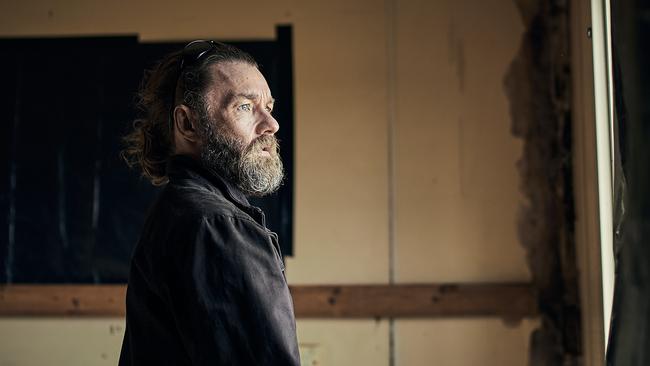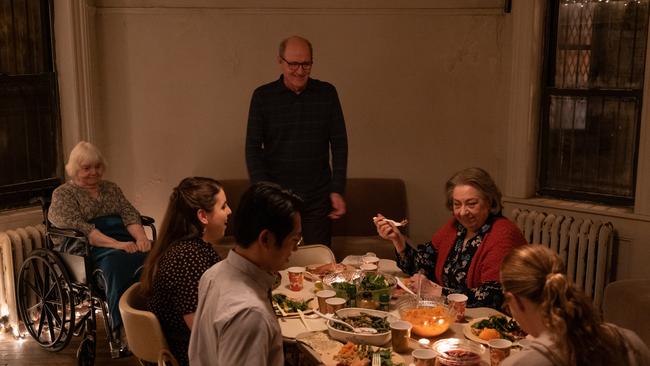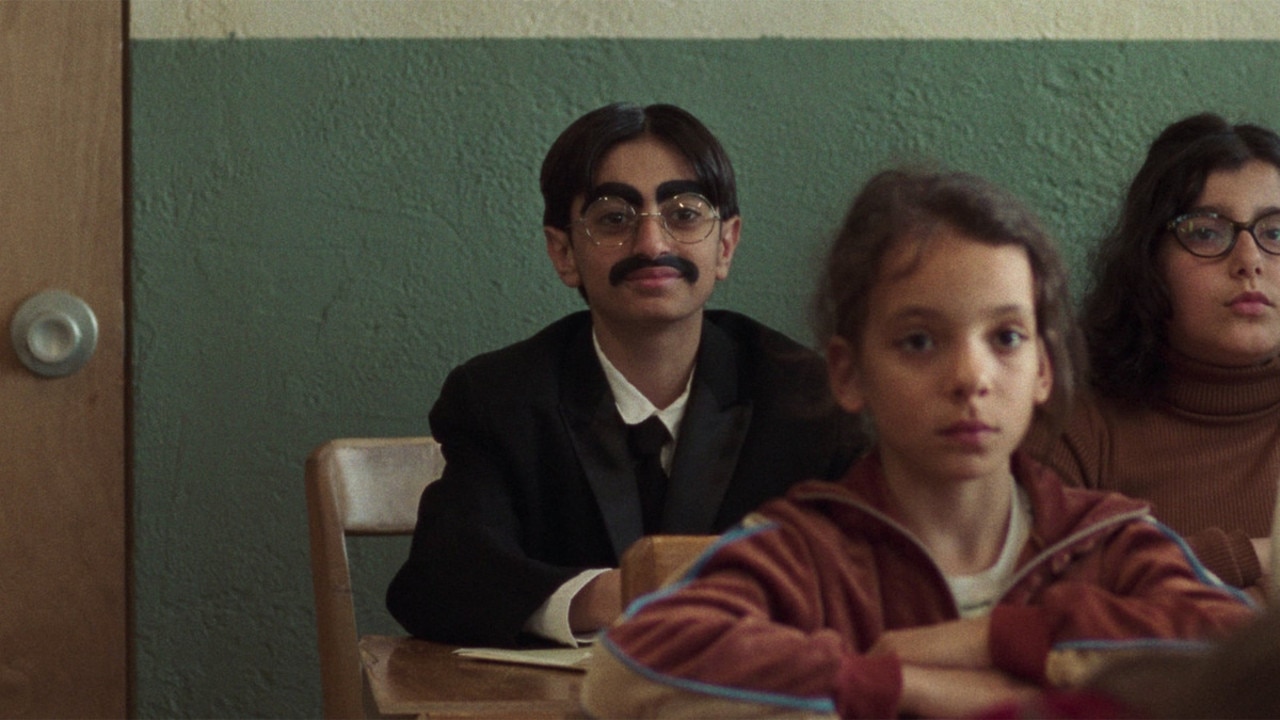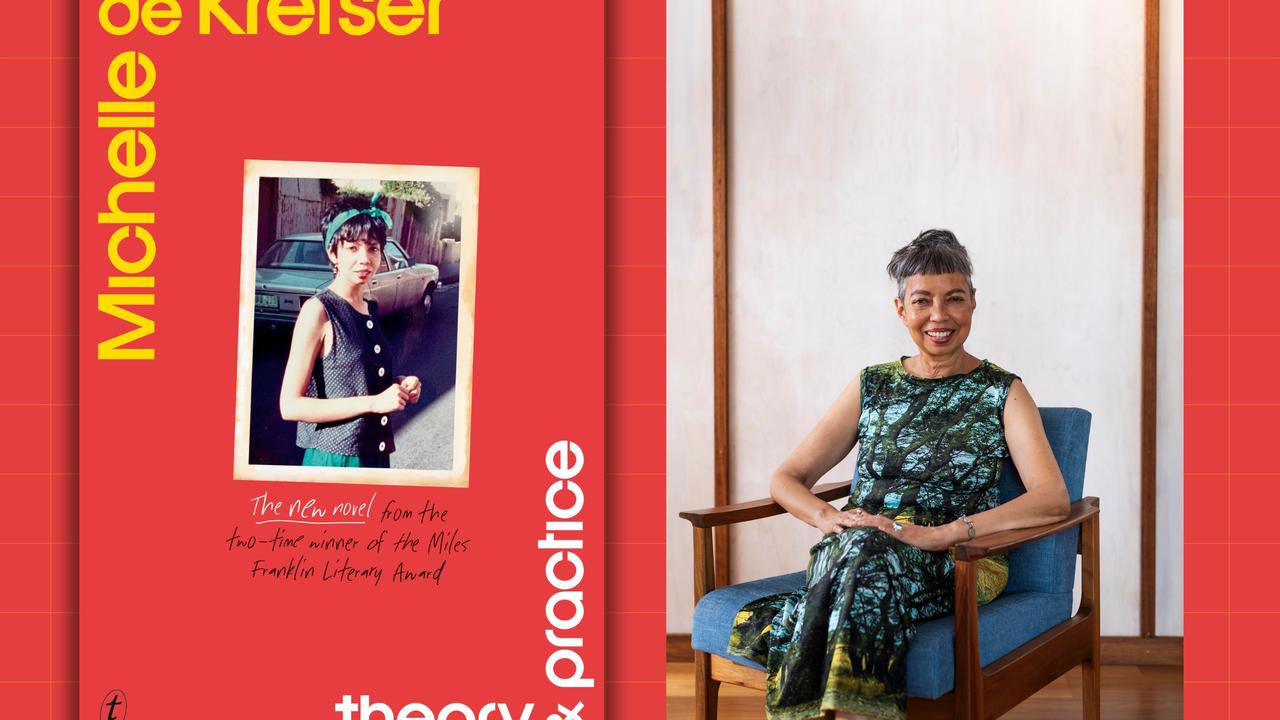Film based on Morcombe investigation, ‘dreary tale about dreary people’
The Stranger, starring Joel Edgerton, could have been a compelling suspense thriller, but instead is a ‘singularly disappointing’ film lacking backstory.

The Stranger (MA15+)
In selected cinemas before Netflix streaming
★★
Essentially, the art of cinema is the art of storytelling. From the beginning of time, stories have been told in one form or another and have been handed down from generation to generation. When the Lumiere brothers in France and Thomas Edison in the US almost simultaneously invented the moving picture in the 1890s a new form of storytelling was born and, with considerable refinements and improvements, has flourished ever since.
The vast majority of movies that are produced aim to tell stories. Of course there are also experimental films that deliberately avoid the narrative structure, but they have always been in the minority. So when you are confronted with a narrative film in which the story is so oblique and so understated that it’s really difficult to follow, it’s a problem.
Such a film is the Australian production The Stranger, an attempt by writer-director Thomas M Wright to adapt a book, The Sting by Kate Kyriacou, which explores the tragic case of the 2003 kidnapping and murder of 13-year-old Queensland schoolboy Daniel Morcombe (only referred to and given the name of James Liston in the film) who disappeared after being last seen waiting for a bus.
Basically the story the film is trying to tell is simple enough, though it is in many ways extraordinary. In the course of a nationwide manhunt for the killer of Morcombe, the police conceived an elaborate operation in which an undercover officer would befriend the suspect and lead him into a police trap. The material could have been the basis for a compelling suspense thriller, but Wright perversely avoids almost every aspect that would have made the drama gripping. The early scenes are especially frustrating as the audience is kept – almost literally – in the dark (cinematographer Sam Chiplin’s images are at times murky).
Henry (Sean Harris) meets Paul (Steve Mouzakis) on a bus and they get chatting. Paul tells his new friend that he can find him a job and next day introduces him to Mark (Joel Edgerton). Mark, a single dad, turns out to be an undercover cop and is backed by a task force consisting of numerous law officers. This much seems clear, but how and why did the police decide that Henry was the man who abducted and killed the boy? The film’s desultory pacing and the infuriating withholding of key information eventually lead to ennui. Why should we care about these characters about whom we’re told so little?
It is commendable, in a way, that Wright – in common with Justin Kurzel’s treatment of Nitram last year – avoids depicting the violence that some filmmakers might have exploited. But in place of any horror is a dreary tale about dreary people, and half the time you struggle to work out just what’s going on.
I was not a great fan of Wright’s first feature, Acute Misfortune (2018), which was about a real-life dysfunctional artist; but it was much better than The Stranger. Speaking of which, even the title of the film seems inappropriate. I can understand why Wright didn’t use the title of the book: memories of Paul Newman and Robert Redford in The Sting (1973) are probably too vivid. But there have been dozens of films and TV series titled The Stranger, notably by Orson Welles in 1946 and by the great Indian director Satyajit Ray in 1991. The Sydney Film Festival screened a Palestinian film with the same title this year.
Wright’s film premiered in the Un Certain Regard sidebar at Cannes in May. Somewhat surprisingly, the film is a co-production between two esteemed production companies, See-Saw Films and the Edgerton brothers’ Blue-Tongue Films; from these successful filmmakers more might have been expected, but The Stranger is singularly disappointing.
-
The Humans (M)
In cinemas
★★★
An unfurnished split-level Manhattan apartment is the strangely eerie setting for Stephen Karam’s film The Humans, which is based on his own award-winning 2016 Broadway play. The apartment is the film’s sole setting, giving the movie a theatrical feel – not that that’s necessarily a bad thing with material so cogently written and impeccably acted.
It is Thanksgiving, which for Americans is a time for family reunions. Brigid (Beanie Feldstein) and her partner, Richard (Steven Yeun), have recently rented this residence at great expense, but have not yet furnished it.
As a combined Thanksgiving/house-warming they have invited Brigid’s parents, Erik (Richard Jenkins) and Deirdre (Jayne Houdyshell), grandma Momo (June Squibb), who has dementia and is confined to a wheelchair, and Brigid’s gay sister, Aimee (Amy Schumer), who has recently broken up with her partner.
During the course of a lengthy celebration, in which too much alcohol is consumed, family secrets and resentments come to the surface.
But it’s the atmosphere of the apartment that casts a morbid spell over the proceedings.
With its rather mysterious corridors, the spiral staircase that connects the two floors, the sinister sounds, the water-stained ceiling, it’s almost a setting for a horror movie.
But The Humans is not a horror movie, at least not in the normal sense of the term.
Impeccably acted, the film is unquestionably rather strange. But somehow it grips you as the six characters involved become more and more clearly defined and explored.

-
Fall (M)
In cinemas
★★★
I find documentary films such as Free Solo both terrifying and exhilarating. Intrepid daredevils who climb sheer rock faces just for the thrill of it are courageous and foolhardy. Fall, a small-scale nailbiter, begins with a scene in which three young people are scaling a mountain peak. They are Becky (Grace Caroline Currey), her husband, Dan (Mason Gooding), and their best friend Shiloh (Virginia Gardner). When Dan falls to his death, Becky is devastated. Almost a year later she’s still grieving.
That’s when Shiloh bullies her into overcoming her grief and fear by joining her in climbing a 2000ft (610m) high abandoned TV tower located in an isolated part of the Mojave Desert. It’s the fourth highest structure in the US – and it’s based on a real tower located near Sacramento. Hunter suggests sprinkling Dan’s ashes from the top. A foolish idea? You bet.
As the young women climb the rusty ladder leading to the obsolete TV dishes, the stairway creaks ominously and loose bolts look dangerously unstable. Sure enough, no sooner do the apprehensive Becky and the supremely confident Shiloh get to the top than the ladder collapses, stranding them on the tower’s platform high above the earth. Mobile phones don’t work and, to make matters even scarier, vultures swoop ominously overhead.
Director Scott Mann and his cinematographer, who goes by the single name of MacGregor, using minimalist means, make the women’s plight seem awesomely real. There’s a powerful sense of the height and isolation of the tower, and the women’s various attempts to get the attention of people on the ground, which include the use of a handy drone, are suspensefully depicted. The film does sag a bit in the middle as some intimate revelations of a not particularly original kind are explored, but generally Fall is a supremely successful exercise in suspense.




To join the conversation, please log in. Don't have an account? Register
Join the conversation, you are commenting as Logout